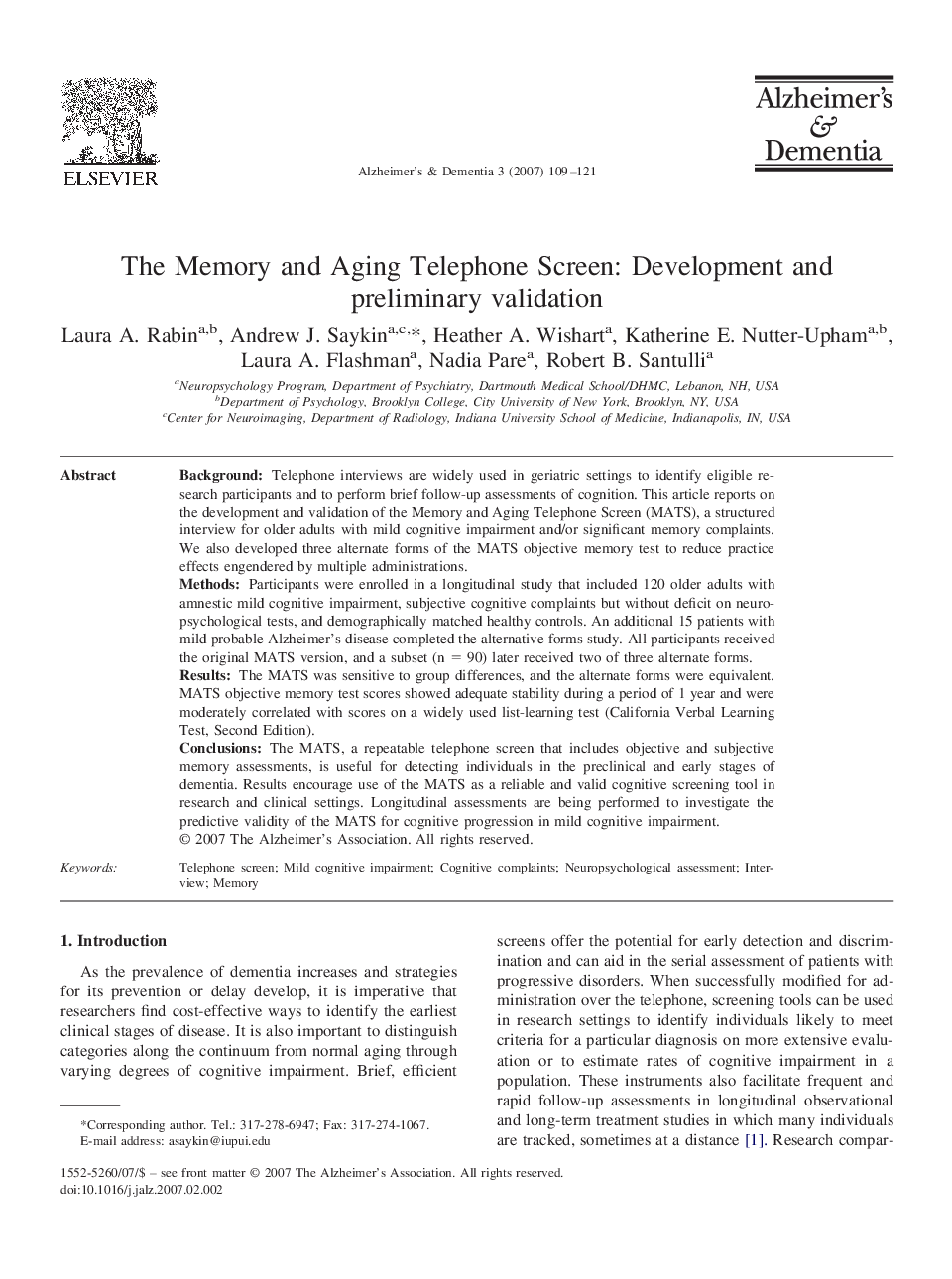| Article ID | Journal | Published Year | Pages | File Type |
|---|---|---|---|---|
| 5625273 | Alzheimer's & Dementia | 2007 | 13 Pages |
BackgroundTelephone interviews are widely used in geriatric settings to identify eligible research participants and to perform brief follow-up assessments of cognition. This article reports on the development and validation of the Memory and Aging Telephone Screen (MATS), a structured interview for older adults with mild cognitive impairment and/or significant memory complaints. We also developed three alternate forms of the MATS objective memory test to reduce practice effects engendered by multiple administrations.MethodsParticipants were enrolled in a longitudinal study that included 120 older adults with amnestic mild cognitive impairment, subjective cognitive complaints but without deficit on neuropsychological tests, and demographically matched healthy controls. An additional 15 patients with mild probable Alzheimer's disease completed the alternative forms study. All participants received the original MATS version, and a subset (n = 90) later received two of three alternate forms.ResultsThe MATS was sensitive to group differences, and the alternate forms were equivalent. MATS objective memory test scores showed adequate stability during a period of 1 year and were moderately correlated with scores on a widely used list-learning test (California Verbal Learning Test, Second Edition).ConclusionsThe MATS, a repeatable telephone screen that includes objective and subjective memory assessments, is useful for detecting individuals in the preclinical and early stages of dementia. Results encourage use of the MATS as a reliable and valid cognitive screening tool in research and clinical settings. Longitudinal assessments are being performed to investigate the predictive validity of the MATS for cognitive progression in mild cognitive impairment.
